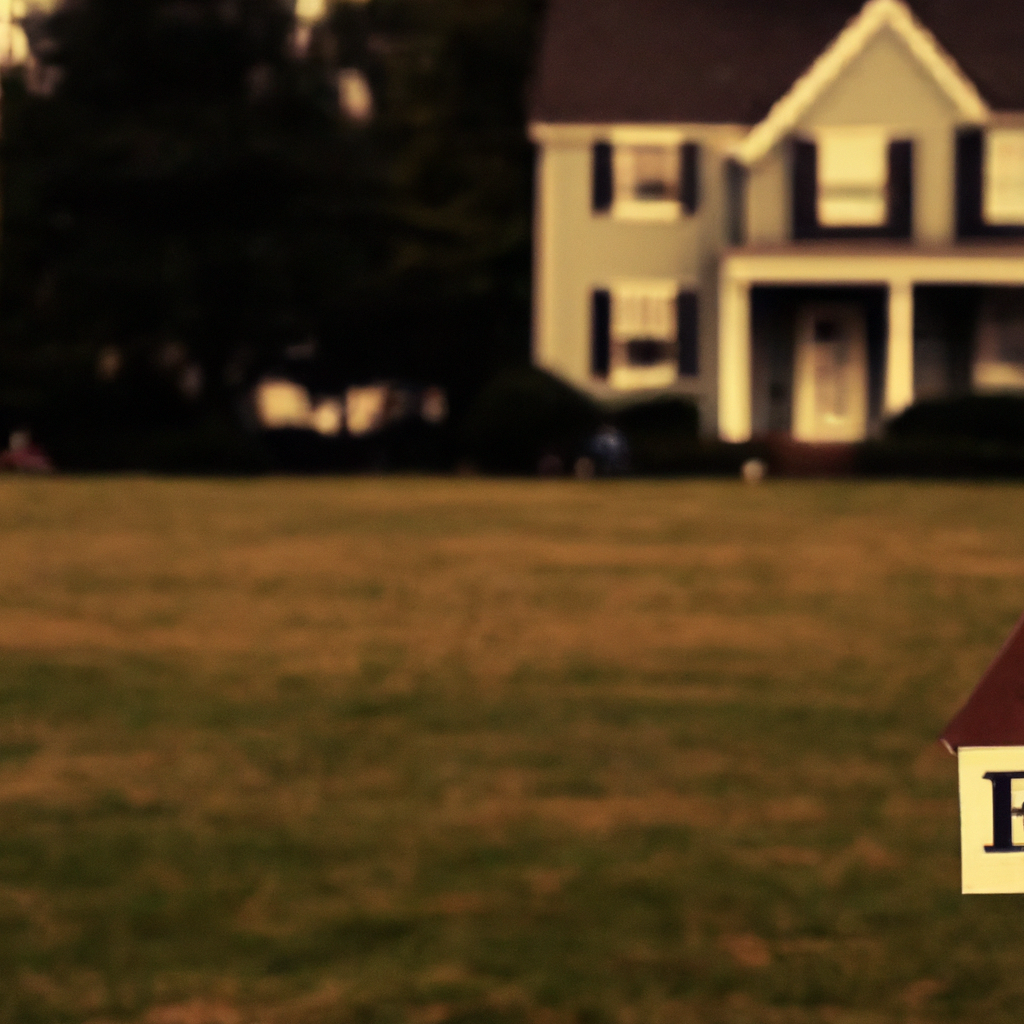How Can I Invest In Distressed Or Foreclosed Properties For Profit?
October 18, 2023 | by Catherine Jones

Interested in investing in distressed or foreclosed properties for profit? Look no further! This article will provide you with all the information you need to get started. Whether you’re a seasoned pro in property investment or just starting out, we’ve got you covered. From understanding the basics of distressed properties to navigating the world of foreclosures, we’ll explore different strategies and tips to help you maximize your profits. So grab a cup of coffee, get comfortable, and let’s dive into the exciting world of investing in distressed or foreclosed properties!

Understanding Distressed or Foreclosed Properties
Distressed properties refer to real estate assets that are in poor condition or facing financial difficulties. These properties are often sold at a discounted price due to their unfavorable condition or financial situation. Foreclosed properties, on the other hand, are properties that have been repossessed by the lender after the owner fails to make timely mortgage payments. These properties are typically sold through auctions or by the lender directly.
Why Invest in Distressed or Foreclosed Properties
Investing in distressed or foreclosed properties can offer several advantages. Firstly, these properties are often sold at a lower price compared to their market value, allowing investors to purchase them at a discount. Additionally, there is the potential for significant profit through renovation and resale or by generating rental income. These properties can provide an opportunity for investors to diversify their portfolio and potentially earn a higher return on investment compared to traditional real estate investments.
Risks Associated with Investing in Distressed or Foreclosed Properties
While there are potential benefits to investing in distressed or foreclosed properties, it is important to be aware of the risks involved. Distressed properties may require extensive renovations, which can be costly and time-consuming. Additionally, the condition of these properties may be worse than initially anticipated, leading to unexpected expenses. Foreclosed properties can also come with legal issues and complications, such as potential liens or title defects. Furthermore, the process of acquiring distressed or foreclosed properties can be competitive, and investors may face difficulties in securing financing or winning auctions.
Researching the Market
Before investing in distressed or foreclosed properties, conducting thorough market research is essential. Market analysis involves studying the local real estate market, including trends, property prices, and demand. This research helps identify areas with potential for growth and opportunities for investment. Once the target market is determined, investors can start identifying potential properties that meet their investment criteria.

Identifying Potential Properties
To find potential distressed or foreclosed properties, investors can utilize various sources such as online listings, foreclosure databases, and networking with real estate agents specializing in distressed properties. These sources provide information about properties that are available for sale or foreclosure auctions. It is important to carefully evaluate each property’s condition, location, and potential for profitability.
Determining Property Value
To accurately determine the value of a distressed or foreclosed property, investors should consider factors such as the property’s current condition, comparable sales in the area, and potential for improvements. Consulting with real estate appraisers or experienced investors can provide valuable insight into accurately estimating a property’s value. This information helps investors decide on an appropriate purchase price and potential return on investment.

Financing Your Investment
Investing in distressed or foreclosed properties requires adequate financing. There are different financing options available to investors, including traditional bank loans, private financing, hard money loans, and crowdfunding.
Traditional Bank Loans
Traditional bank loans are a common financing option for real estate investments. Investors with good credit and stable income may qualify for these loans. However, the process can be lengthy, and traditional lenders may have strict requirements, making it challenging for investors to secure financing for distressed properties.
Private Financing
Private financing involves securing loans from individuals or private lending institutions. This option can provide more flexibility and faster approval compared to traditional bank loans. Investors can negotiate loan terms directly with the lender, making it potentially more suitable for investing in distressed or foreclosed properties.
Hard Money Loans
Hard money loans are short-term loans provided by private lenders or investment groups specifically catering to real estate investors. These loans are typically based on the value of the property rather than the borrower’s creditworthiness. While hard money loans often come with higher interest rates, they offer quick access to funds, making them a popular choice for investors in time-sensitive situations.
Crowdfunding
Crowdfunding platforms offer an alternative method of financing real estate investments. Investors can pool their funds with others to invest in distressed or foreclosed properties. This option provides an opportunity to diversify investments and access potentially higher returns. However, investors should carefully research and evaluate the crowdfunding platform and the investment opportunities it presents.
Evaluating Profit Potential
Estimating repair and renovation costs is crucial in determining the profit potential of distressed or foreclosed properties. Conducting a thorough inspection and obtaining quotes from contractors can help investors accurately assess the repair costs. It is vital to account for both visible and hidden repairs that may be needed. Additionally, calculating potential profit involves considering the after-repair value (ARV) of the property. This is determined by analyzing comparable sales in the area and factoring in the renovation improvements.

Considering Rental Income
Investors interested in long-term investments can consider generating rental income from distressed or foreclosed properties. Before committing to rental income, it is important to study the local rental market and analyze rental rates, vacancy rates, and potential demand. Rental income can provide a steady cash flow and contribute to the overall profitability of the investment.
Negotiating Purchase Terms
When purchasing distressed or foreclosed properties, negotiations play a crucial role in securing favorable terms. Investors can choose to work with real estate agents specializing in distressed properties, who can help identify negotiation opportunities and guide the process. Additionally, direct contact with sellers or lenders can offer a more personalized approach. However, investors should conduct proper due diligence, including verifying property details and potential liens, to avoid issues during the negotiation process.

Completing the Purchase
Completing the purchase of distressed or foreclosed properties involves several important steps to ensure a smooth transaction.
Reviewing Legal Documents
Investors should review all legal documents associated with the property, such as the purchase agreement, foreclosure documents, and title deeds. It is recommended to seek legal advice to fully understand the implications and obligations outlined in these documents.
Title Search and Insurance
Conducting a thorough title search is vital to ensure that there are no liens or legal complications attached to the property. Obtaining title insurance provides protection against potential title defects and ensures clear ownership. Lenders often require title insurance as a condition for financing.
Closing the Deal
The final step in completing the purchase is the closing process. This involves signing all necessary documents, paying closing costs, and transferring ownership. It is advisable to work with a qualified closing agent or attorney who can oversee the process and ensure all legal requirements are met.
Property Management
Once the distressed or foreclosed property is acquired, investors need to consider property management.
Self-Management vs. Hiring a Property Management Company
Investors can choose to manage the property themselves or hire a property management company. Self-management requires hands-on involvement in tasks such as finding tenants, collecting rent, and handling maintenance. Hiring a property management company can alleviate these responsibilities but comes with management fees. The decision should be based on an investor’s comfort level, experience, and availability.
Finding Reliable Tenants
If the goal is to generate rental income, finding reliable tenants is crucial. Conducting thorough tenant screening, including background checks, credit checks, and rental history verification, can help ensure tenants who are financially responsible and respectful of the property.
Dealing with Maintenance and Repairs
Regular maintenance and prompt repairs are essential to keep the property in good condition and maintain its value. Investors should establish a network of reliable contractors and vendors to handle maintenance and repair requests promptly. Proper budgeting for ongoing maintenance and repairs is necessary to protect the property investment and minimize potential risks.
Exit Strategies
Investing in distressed or foreclosed properties requires considering exit strategies.
Fix and Flip
The fix and flip strategy involves purchasing a distressed property, renovating it to improve its value, and selling it quickly for a profit. This strategy requires meticulous renovation planning, managing renovation costs, and accurately assessing the market to ensure a profitable sale.
Long-Term Rental
Investors can choose to hold the distressed or foreclosed property as a long-term rental, generating steady cash flow from rental income. This strategy can provide a consistent return on investment while allowing the property to appreciate in value over time.
Wholesale
Wholesaling involves finding distressed properties and assigning the purchase contract to another investor for a fee. This strategy requires identifying properties at a significant discount, effectively marketing them to other investors, and negotiating favorable contract terms.
Lease Options
Lease options provide an opportunity to secure a distressed property by entering into a lease agreement with the owner that includes an option to purchase at a later date. This strategy allows investors to control the property without immediate ownership while potentially benefiting from appreciation and rental income.
Tips for Success
To succeed in investing in distressed or foreclosed properties, consider the following tips:
Networking with Industry Professionals
Building relationships with real estate agents, contractors, lenders, and other industry professionals can provide valuable insights, access to off-market deals, and opportunities for collaboration.
Staying Updated with Market Trends
Continuously monitoring market trends, local regulations, and economic indicators is crucial to make informed investment decisions. Attending seminars, workshops, and industry events can also provide valuable education and networking opportunities.
Continued Education and Learning
Investing in distressed or foreclosed properties requires knowledge in various areas, such as real estate laws, financing options, and property management. Continuously educating oneself through books, online courses, and real estate investment groups can help investors stay informed and make better investment decisions.
Potential Challenges
Investing in distressed or foreclosed properties comes with its own set of challenges.
Unforeseen Repairs and Additional Costs
Distressed properties often require extensive repairs, and unforeseen issues may arise during the renovation process. Investors should be prepared for unexpected expenses and have contingency plans in place to mitigate potential losses.
Dealing with Difficult Tenants
Managing rental properties can come with challenges, such as difficult tenants who may cause property damage or fail to pay rent on time. Having clear lease agreements, prompt communication, and a professional approach can help address these issues effectively.
Market Fluctuations and Economic Risks
Real estate markets are subject to fluctuations and economic risks. Changes in interest rates, local economic conditions, and housing market trends can impact property values and rental demand. Investors should assess and account for these potential risks when formulating investment strategies.
Investing in distressed or foreclosed properties requires careful consideration, thorough research, and strategic planning. By understanding the market, evaluating profit potential, and utilizing the right financing methods, investors can unlock opportunities for profit and long-term success in this niche real estate sector.
RELATED POSTS
View all


